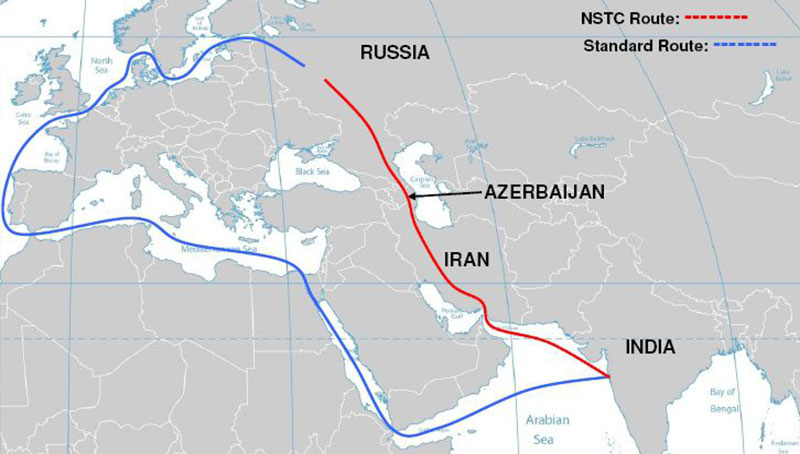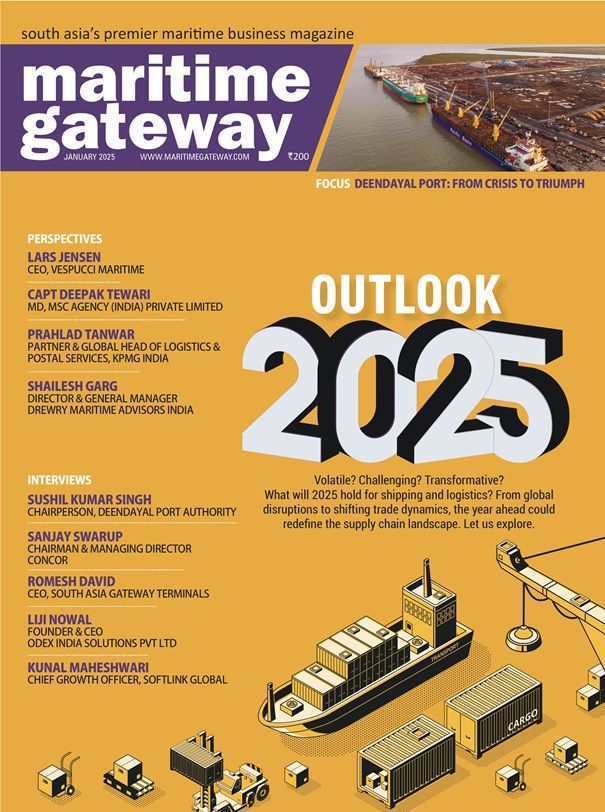[vc_row][vc_column][vc_column_text]
Iran, Russia and India have revived long-stalled discussions on a multimodal North-South Transportation Corridor linking Mumbai to the port of Bandar Abbas to Moscow. The 4,000 mile intermodal route would bypass the Suez Canal, cutting weeks off of the sea route transit time from the Arabian Sea to the Baltic.
A first version of the plan, floated 16 years ago, would have routed container shipments to the Caspian Sea port of Olya, near Astrakhan, then transshipped them up the Volga to Russia and thence to eastern Europe. At the time, President Vladimir Putin emphasized that the limited cargo handling capacity at Olya would have to be boosted in order to take care of the additional traffic.
In 2014, the Federation of Freight Forwarders of India tested this route and an alternative passing through Azerbaijan, and found that routing cargo through the Caspian region could save as much as $170 per ton over the cost of shipping through the Suez Canal.
The Azerbaijan route to Russia would rely on an as-yet-unfinished $1 billion rail link from Iran’s rail network to the Azerbaijani border. Diplomats from the two countries have said that they are seriously determined to complete the line, so long as Azerbaijan finalizes a $500 million loan for its construction.
The corridor also faces a bottleneck at Bandar Abbas, which handles the great majority of Iran’s seagoing trade and suffers from severe congestion. India has long intended to develop an alternative deepwater port at Chabahar, which would give it access to Afghanistan and other nations in Central Asia via the Ashgabat agreement, a multimodal transport deal involving Oman, Iran, India, Turkmenistan, Uzbekistan and Kazakhstan. India signed on in March; the multimodal route would connect Central Asia to the Persian Gulf.
[/vc_column_text][/vc_column][/vc_row]







